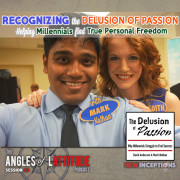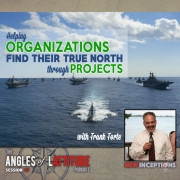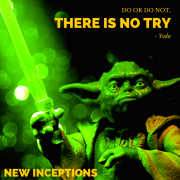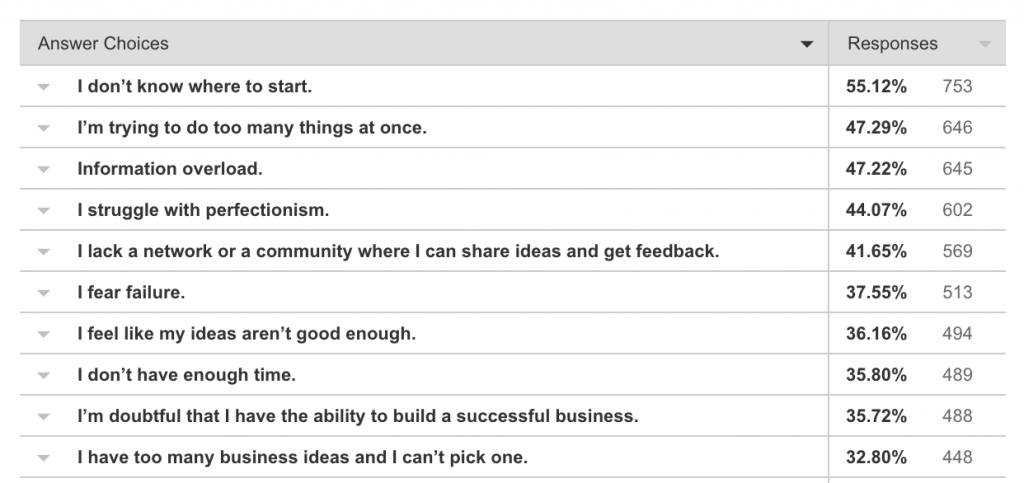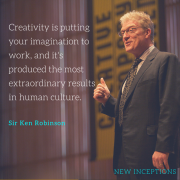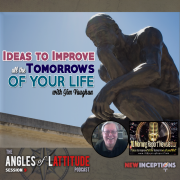AoL 023: Recognizing the Delusion of Passion: Helping Millennials find True Personal Freedom with Mark Nathan
“Being financially free. What a goal. Man, if we could only be financially free, we wouldn’t have to work!”
Has said many a millennial entrepreneur as they set out on their first business.
I know that was the case for me when I first fell into entrepreneurship. Just like, I’m sure, anyone else that has read Rich Dad, Poor Dad. Those of us who have read Robert Kiyosaki’s work knows that ideally we want to have as many passive income streams as we can. In fact, he says that one of the easiest ways to build passive income is get started with a direct sales company or MLM.
So, in 2006, that’s what I did. Shortly there after, I met a guy who was quickly rising in the ranks of success in my group. Someone that inspired me quite a bit to leave the shell of an engineer behind.
That someone was this session’s guest, Mark Nathan. Mark has been financially free since 2009 and has worked his tail off to get there. Over the years, the speeches that I have seen him do and the videos that I have seen him in have made me realize that doing what he’s done is possible… and that anyone can do what he’s done. Like Pat Flynn, he’s a very relatable guy and a teacher at heart. But he won’t back away from giving you some tough love.
Recently, Mark has been using his financial freedom to help other startups in the Chicago area get off the ground. And I assume, that one of the things he’s realized is that a lot of us Millennials think that what we want is going to come easy to us. (I mean, why wouldn’t it? So many of us have only ever had to be in school… and that was relatively a cake walk!)
Well, that reason is why a lot of us fail at projects we set out to do. We simply don’t realize all the hardships that we’re going to face to achieve what we want to achieve.
So, to help us get the right state of mind of what it takes to succeed, he and his co-author, David Anderson, wrote their first book: The Delusion of Passion – Why Millennials Struggle to Find Success. Who better to give us struggling Millennials a little tough love than a fellow Millennial who’s reached the Summit?
In today’s talk, Laila and I talk with Mark about his ups and downs in business, what being financially free means to him, and what he and his wife do with their “extra” time.
SPECIFICALLY, YOU’LL FIND OUT MORE ABOUT:
- What he learned about business early in his career during his time at Loyola.
- What Mark and his wife do with their freedom (including getting on Family Feud).
- His experiences in theatre, including starting a film festival.
- His thoughts on developing a direct sales/MLM business and how to build one successfully.
- What Financial Freedom means to him.
- Where the idea for his book came from.
- Some of the way’s he’s “embraced the suck” to get to where he’s at.
- What mentorship has meant to him over his career.
- How to make reliable partners out of followers.
- …and MUCH more.
Right click here and save-as to download this episode to your computer.
ITEMS and PEOPLE MENTIONED IN THIS EPISODE:
- Mark’s Personal Site
- David Anderson on LinkedIn
- Delusion of Passion Site
- School Loan 411
- Hostgator Get your files backed up and updated automatically so you never lose your site! Click here to save 20% off your order.
SHOW NOTE EXTRAS:
First Tip for Beginning Entrepreneurs
Meredith joins in talking about the Law of Resistance:
Mark’s brother, Father Matt, meets Steve Harvey:
You can tell that Mark and his family lead an Upgraded Life!
Thanks for Listening!
Thanks so much for joining us again this week. Have some feedback you’d like to share? Leave a note in the comment section below!
If you enjoyed this episode, please share it using the social media buttons you see at the top of the post.
Also, please leave an honest review for The AoL Podcast on iTunes! Ratings and reviews are extremely helpful and greatly appreciated! They do matter in the rankings of the show, and we read each and every one of them.
If you have any questions feel free to email them over via the email mentioned in the show or by our contact form.
And finally, don’t forget to subscribe to the show on iTunes, Stitcher, and/or Podbean. It’s absolutely free to do so.
A huge thank-you to you guys for joining us!
Cheers!

